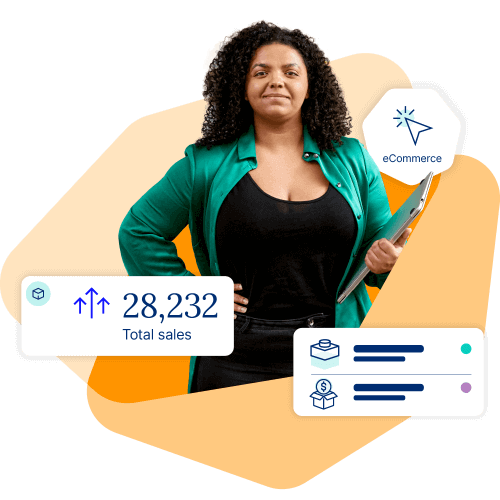

A lot of hype happens when ‘budget season’ comes around for a business, with images of late nights and spreadsheets and stress levels boiling over. For accountants, it’s just another normal financial budgeting task with monthly updates including actual results and changes to the forecast.
Businesses generally set a budget for the financial year ahead, based on prior performance and planned changes to the business, including product expansions, efficiencies, and changes in the market.The budget is used as a tool to track progress, usually on a monthly basis when the actual results for the month are compared to the budget set for that month. In this monthly review, the team creates an updated forecast for the remainder of the year to support upcoming business decisions.
For product sellers, this budget is done with varying levels of information, depending on what is easily accessible for the business. Setting a budget often means taking an educated guess on the volume, pricing, and cost of their product sales, rather than actual data that may be buried in systems or needs to be manually calculated.
With digital commerce systems, budgeting and forecasting is more sophisticated and accurate as historical information is readily available and easily analyzed. Budgets based on actual prior performance with an assumed margin of improvement give the most accurate picture of future success. Forecasts are then a simple formula of the actual year to date results plus the budget for the balance of the financial year.

Looking forward, as software evolves and brings intelligent commerce to small businesses, annual budgets and latest forecasts must become a financial plan based on the latest real time factors, both internally and externally. The annual budget will take into account market predictions and the monthly forecasting process will take into account real time information for their market each month.
With the help of digital commerce, accountants can easily access the last 12 months of product sales to create their seasonal revenue and cost budgets. Intelligent commerce takes this a step further ,enabling businesses to have a financial plan that updates in real time based on the latest internal data and the targeted market conditions. Businesses that use the power of intelligent commerce can make strategic decisions to achieve the best outcomes or address adverse conditions as they happen.

Accountants and business leaders will be able to focus on making strategic decisions – including finding opportunities for expansion or cost savings, instead of spending time compiling historical numbers to work out a trend for the year ahead.
Cin7’s solutions provide today’s businesses with tomorrow’s intelligent budget needs, including detailed product sales and costing information to create your budgets and update your forecasts. Plus, these budgets and forecasts can be compared to actual results within Cin7 for the greatest visibility with less manual data management.
Cin7 led the way with bringing digital commerce to product sellers and is committed to democratizing intelligent commerce for small businesses. Join us in this exciting journey where intelligent commerce will enable small business owners and their accountants to add more value to the growth of the business.


A chain reaction of improvements Since their Cin7 implementation, Brompton’s US business has gone from strength to strength. The first and most important ingredient in their transformation: their inventory management is now tip-top. Phil cites a laundry list of improvements, including the ability to ring-fence stock for certain channels, preventing mis-ships. “Another work around we […]

Learn the top five ways product companies and ecommerce specialists can automate their inventory and financials with Catching Clouds: An Acuity Company. The Top Five Key Lessons for Automating Your Inventory and Financials: Done right, automation actually makes good people even better To get financial fundamentals right, give them to someone else You need an […]

If you’ve been hanging around the accounting department, chances are you’ve heard the term cost of goods sold (COGS) thrown around a few times. But while COGS is important, it’s also a concept people tend to misunderstand. Knowing what COGS is will help you better understand all of the costs associated with your product and […]